Roger T. Ames was born in 1947 in Toronto, Canada. As a professor at the University of Hawaii, an advisor to Nishan Shengyuan Academy, Chairman of the World Association of Confucian Culture Studies and Vice Chairman of the International Confucian Association, he is an internationally famous expert in Sinology. He is a leading figure in Chinese & Western philosophy and is famous in China and abroad for his translation of books such as theAnalects of Confucius,Sun Tzu’s Art of War,Huainan Tzu andTao Te Ching He was the Chief Editor toPhilosophy of the Occident and Orientas well as theInternational Chinese Book Reviewand the author ofConfucian Philosophical Thinking,Thinking from the Han: Self, Truth, and Transcendence in Chinese and Western Culture,Anticipating China: Thinking Through the Narratives of Chinese and Western Culture,the Art of Rulership: A Study into Chinese Political ThoughtandDemocracy if the Dead: Dewey, Confucius and the Hope for Democracy in China. Roger T. Ames once received the guidance of Liu Dianjue and became proficient in classical Chinese, then to one of the most outstanding modern scholars of Classical Studies. In 2013, he was awarded the "Confucius Culture Award" by the 6th World Confucian Congress. Then he won the second "Huilin Prize Award" in 2016.…
+ Learn more
 2017-11-01 publish
2017-11-01 publish

 2017-11-01 publish
2017-11-01 publish
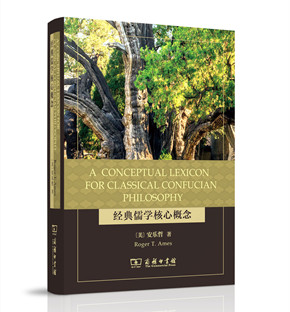
A Conceptual Lexicon For Classical Confucian Philosophy
Roger T.Ames
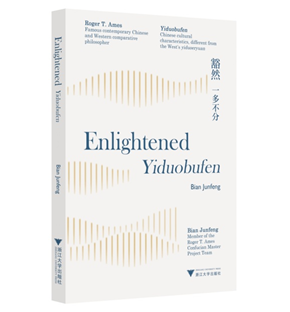
Enlightened: Yiduobufen
Bianjunfeng
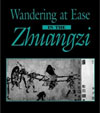
Wandering at Ease in the Zhuangzi
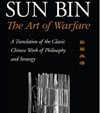
Sun Bin The Art of Warfare A Translation of the Classic Chinese Work of Philosophy and Strategy d Culture
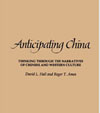
Anticipating China Thinking Through the Narratives of Chinese and Western Culture
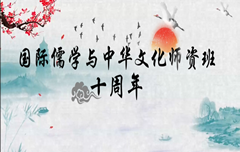
On the 21st of August 2020, the opening ceremony and 10th Anniversary of the International Confucian Studies Summer Institute was successfully held in Beijing. For ten years, the institute has trained students from high educational institutions in China and beyond such as Harvard University, Tsinghua University, Peking University, University of Hawaii, University of Washington, Bath Spa University, from countries around the world including Finland, the United States, the United Kingdom, Australia, China, Italy, Russia, Poland, Malta, Turkey, Korea, Singapore, Germany, India, Egypt, Denmark and Isreal.
 2020-09-17 publish
2020-09-17 publish 449 Views
449 Views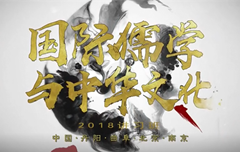
2018 Nishan Confucian Studies Summer Institute was held in Danyang, Nanjing, Qufu and Beijing successfully. More than 50 students from the United Kingdom, the United States, Australia, Spain and China exchanged eastern and western cultures, and spread Chinese culture to the world.
 2018-11-21 publish
2018-11-21 publish 377 Views
377 Views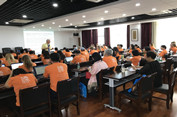
In the class
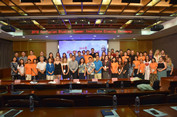
Closing Ceremony
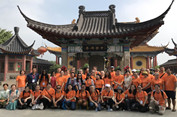
Jizi Temple
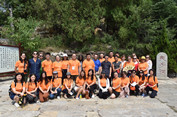
Cave of Confucius
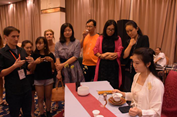
Tea Ceremony
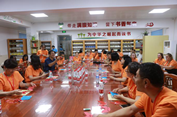
Cut-paper


Marcel Granet


Ivor Armstrong Richards


Noel Joseph Terence Montgomery Needham


Chenshan Tian


Jim Behuniak


Hans-Georg Moeller


Ian Sullivan, Instructor, Seattle University


Robin Wang


LiChenyang


Wen Haiming


Patrick Mendis

Roger T·Ames Translating China Project Secretariat, with the aim of promoting the the revival of the Eastern culture and development of world cultural diversity under the form of globalization, promote the understanding of eastern and western cultures, build respect and trust and achieve a harmonious world that is engaged in the research and exchange between the Orient and the Occident, which provides a wealthy treasure trove for the spirit of humanity. The center is established with a council and an academic committee. Professor Tian Chenshan is the director of the center, he is a foreign expert at Beijing Foreign Studies University and a researcher at the China Research Center at the University of Hawaii. The vice directors include Zhang Kai and Bian Junfeng respectively. The main task is to promote academic research on the cultures and relationship between the East and West, as well as to provide policy suggestions for relevant departments; to provide related knowledge on the relationship between the East and West to the public, improve the public’s awareness of communication and contact between other civilisations under globalization, strengthen the cultural spirit of the Chinese nation's confidence and self-determination; to promote exchanges and cooperation with foreign academic institutions and scholars and promote the dialogue between civilizations in the context of globalization and post-modern times. Since its establishment, the center has held several international and national seminars and invited renowned scholars from home and abroad to give lectures. For example: In June 2009, the International Academic Symposium on "The New Vision of East-West Cultural Comparative Studies" was held in collaboration with Nishan Shengyhuan Academy in the hometown of Confucius, Nishan; In October 2009, the International Academic Symposium on "The Financial Crisis and Cultural Revelation" was convened in BFSU; in October 2010, the International Academic Symposium on "100 Years of Confucianism and Oriental Civilizational Revival" held in Nishan, Shandong, etc. From 2010 until now, the center launched the project "Envoy of Confucianism – Sowing the Seeds of Chinese Culture" successively with the International Confucian Association, Chinese Confucian Research Center, Nishan Shengyuan Academy, Confucius Institute Headquarters, Beijing Sihai Classical Cultural Dissemination Center. The goal is to improve the basic structure of Chinese Traditional Culture in education, communication and propagation within the perspective of the comparison between China and the West, as well as to help people engaged in related work and studies to build an international vision, to master cross-cultural comparative methodologies and create a new realm of cognition to Chinese culture and issues.
+ Learn more
北外东西方关系中心成立于2008年,旨在在全球化的形势下致力于促进东方文化的复兴和世界多元文化发展,丰富人类精神宝库,推动东西方文化的理解、尊重和建立互信,为最终实现一个东西方和谐的世界从事研究和交流。 北外东西方关系中心成立于2008年,旨在在全球化的形势下致力于促进东方文化的复兴和世界多元文化发展,丰富人类精神宝库,推动东西方文化的理解...
+ Learn more